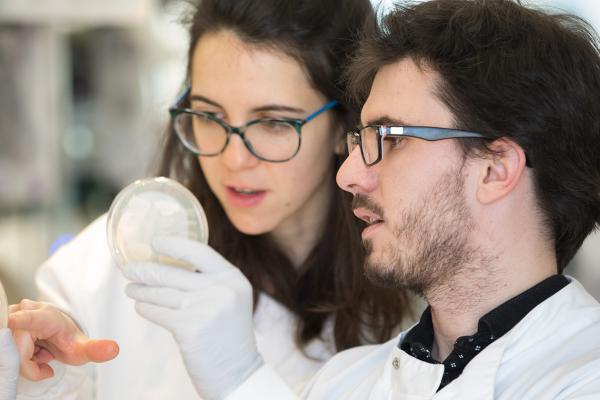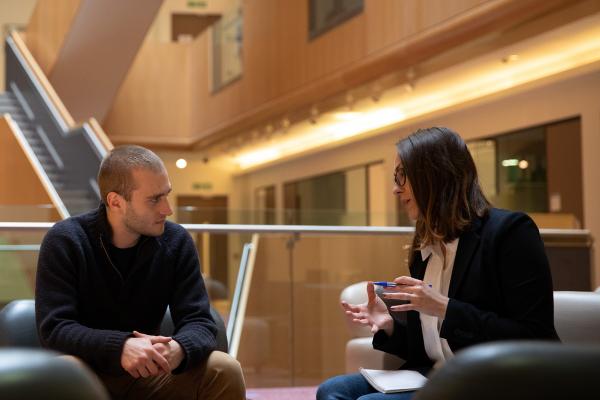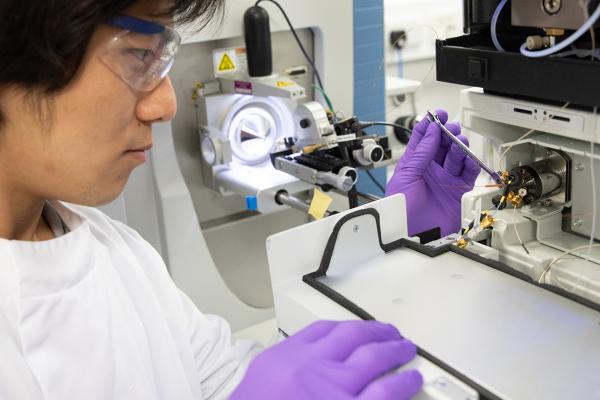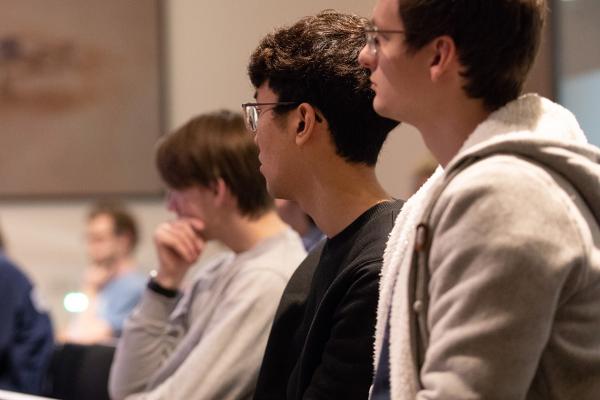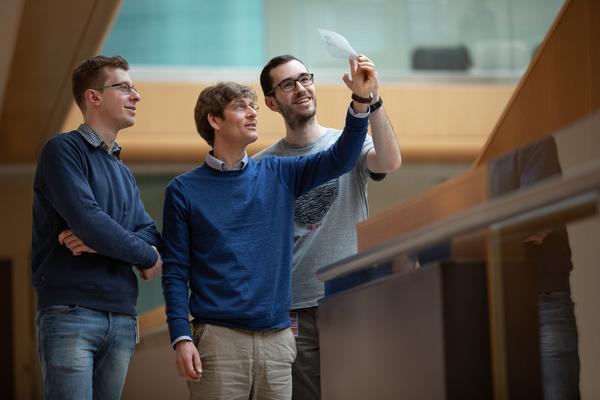Graduate admissions
Every year we welcome 22 new direct entry students on to our world-class graduate programmes, with further student places offered via the University’s various DPhil programmes.
To study with us as a graduate you'll need to be able to demonstrate your academic excellence - usually by having or being predicted to get a first class undergraduate degree or a strong upper second-class undergraduate degree with honours (or the international equivalent) in biochemistry, chemistry, biology, cell biology, molecular biology, biophysics, physics, maths, or computation.
We also take into account any other qualifications, publications, or laboratory experience you might have when we look at your application - and of course how you come across in your interview will be a key factor in whether or not you’ll be offered a place with us.
You also need to demonstrate an acceptable level of English, so if it isn’t your first language then you’ll have to make sure you can meet the University’s English language requirements.
If you’re invited to interview, either in person or over a video call, you’ll be assessed by at least two different interviewers. They’ll ask you to talk about any research projects that you’ve undertaken and about your general study and research training to date, as well as asking you questions about your proposed area of study and your motivation for undertaking a graduate course with our department.
How to apply
We welcome and encourage you to contact potential supervisors that you are interested in working with. The purpose of contacting a supervisor is to learn more about the project and/or lab, and determine whether there would be a good fit between what you are looking for and what the lab can offer. To contact supervisors, begin by looking through the academic profiles and available projects on the department website (https://www.bioch.ox.ac.uk/supervisors-and-projects) and identify supervisors you may be interested in working with. Send an email to these potential supervisors indicating that you are interested in applying for a MSc/DPhil in their lab. You should explain why you are interested in their project/lab and include any questions you may have about it. Further advice on how to contact potential supervisors can be found on the graduate admissions website Application Guide | University of Oxford
If you do not receive a response after two weeks, please send a follow-up email to graduatestudies@bioch.ox.ac.uk. We encourage you to contact more than one supervisor.
The University of Oxford works on a collegiate system, so you have to specify a college on your application form or else say that you have no college preference. The colleges provide academic support through advisors, seminar programmes, career development opportunities and scholarships, as well as offering another academic community alongside our department for you to develop friendships and enjoy broader intellectual and leisure activities. Your colleges might also provide accommodation, usually for at least part of your programme of study, as well as sports facilities, clubs/societies, and meals. The list of colleges that accepts students on the MSc by Research in Biochemistry can be found here and for the DPhil in Biochemistry programme here.
When you do apply, the documents you should send with your application include:
For further information please see the graduate admissions website Application Guide | University of Oxford
For further information please see the graduate admissions website Application Guide | University of Oxford
For further information please see the graduate admissions website Application Guide | University of Oxford
Once you’re ready, you can apply online, which you’ll need to do before the application deadline in early December. If you have your own source of external funding, you can apply after the early December deadline. However, before submitting an application after the December deadline, we advise that you contact us to confirm that there are still places available on the course



